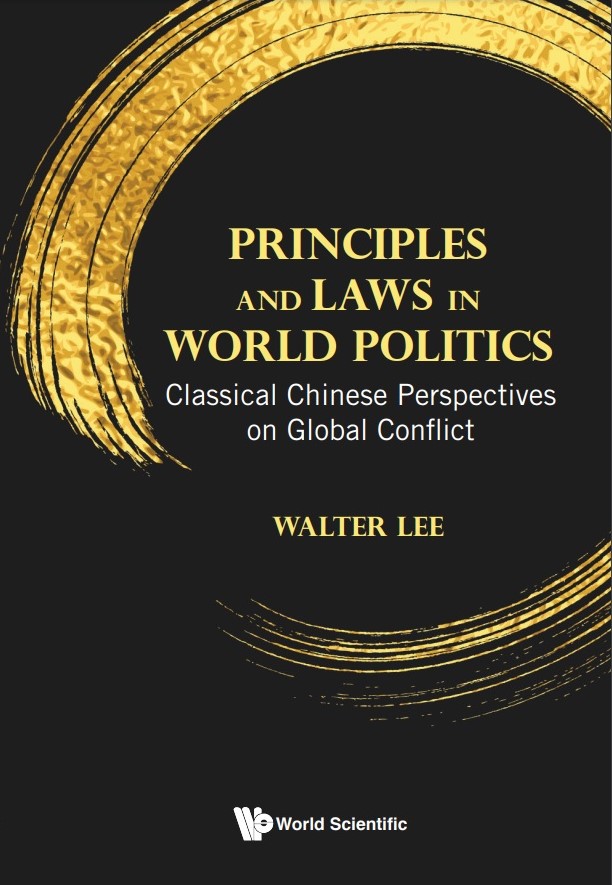Principles and Laws in World Politics: Classical Chinese Perspectives on Global Conflict
By : Walter Lee
Release date: Dec 2021
World Scientific Publishing
Number of pages: 524
ISBN: 978-981-123-213-8


The search for universal principles and laws in world politics is a colossal common task for all civilisations. It should not be monopolised by the Western liberal paradigm. Thirty years after the end of the Cold War, global conflicts have been satisfactorily resolved neither by communism nor liberalism. Humanitarian intervention, now under the cover of the responsibility to protect (R2P), has destabilised many societies, leaving justice undone. This inspiring book invites debates on the post-liberal imagination of "emancipated Leviathan": an almighty political authority which exercises awe and force to restore order, as well as enshrines globally-negotiated values of common conscience and reinvented cosmopolitanism. Human well-being will truly become reality when we synergise pre-modern and pre-liberal ways of thinking, worldviews, ethics, and aesthetic styles by means of cross-civilisational, cross-disciplinary fundamental research, and let an emancipated Leviathan exercises principles and laws of virtue derived from the study.
The starting point of such intellectual innovation is China. This book explores the application of classical Chinese resources to the innovation of thoughts in contemporary Chinese international relations (IR). It examines whether "Knowledge Archaeology of Chinese International Relations" (KACIR), coined by the author, responds sensibly to today's issues of international ethics and global justice. The book contends that emancipative hermeneutics holds the key to the Chinese soft power puzzle. A bottom-up, non-nationalistic, and non-ethnocentric approach to the Chinese civilisation will reinvent intellectual pluralism and cosmopolitan elements in the Chinese tradition that interact constructively with and ultimately transcend the liberal Western model. Strolling from contemporary IR back to ancient Chinese philosophy, then striding into the future searching for common principles and laws, this insightful book is a must-read for those who want to reflect on global conflicts in this era of great uncertainty and transformation, as well as those who love to make our world a better place to live in.
Contents:
Introduction
Conundrum:
Contemporary Problems and Classical Solutions
Knowledge Archaeology of Chinese International Relations (KACIR)
Experiment:
Problems of Legitimacy in the Use of Force
Problems of Legality in the Use of Force
Solution:
What Is China? Questioning the Politics of Intellectual History
Reinventing Cosmopolitan Thoughts in Chinese Civilisation
The Way Forward: Searching for Common Principles and Laws in World Politics
Readership:
Academics, professionals, policymakers, undergraduate and graduate students interested in world politics, international political theory, conflict resolution, international law, Chinese international relations and classical Chinese philosophy.
About the author:
Walter Lee (PhD Auckland) is Assistant Professor at the School of Arts and Social Sciences, Hong Kong Metropolitan University. He serves there as Programme Leader of Global and China Studies and Research Fellow of Public and Social Policy Research Centre. Dr. Lee specialises in Chinese international relations, with reference to intellectual history and global governance. He has a broad interest in knowledge production and cross-disciplinary research that brings Political Science and the Humanities into conversation. Dr Lee was Visiting Scholar in Division of International Politics Theory, Institute of World Economics and Politics at Chinese Academy of Social Sciences (CASS) in Beijing; Senior Research Fellow and Visiting Fellow at Centre for Comparative and Public Law, University of Hong Kong (HKU). His enduring passion for making the world a better place was much inspired by his internship experience with the United Nations General Assembly at New York City headquarters.











